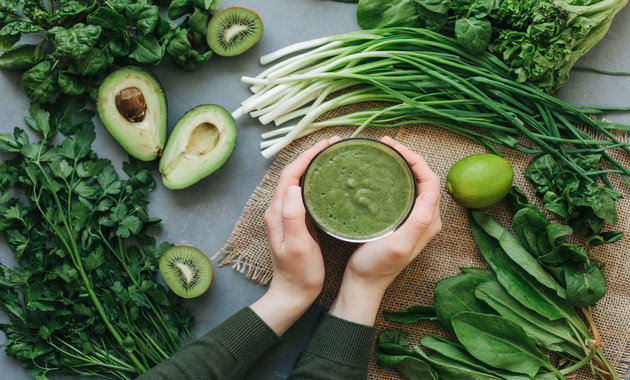
The anti-inflammatory diet is a nutritional medication for inflammatory bowel disease (IBD). It is basically a fibre-rich diet that helps to reduce inflammation. The diet restricts the intake of certain carbohydrates and adds pre & probiotic foods. A number of researchers in the field of health, food and nutrition have revealed that inflammation in the body leads to or contributes to a great number of acute and chronic diseases and disorders. Some of these diseases are osteoarthritis, rheumatoid arthritis, Parkinson’s disease, heart disease, Alzheimer’s disease and even cancer.
A sedentary lifestyle and faulty food habit may also cause obesity that leads to diabetes, high blood pressure and various other serious ailments.
Therefore it is highly necessary for individuals to switch over to an anti-inflammatory diet and regular exercise to keep these diseases at bay.
The key components of the anti-inflammatory diet:
There are five components in an anti-inflammatory diet:
1 . Changes to the carbohydrate intake (including lactose and other refined or processed complex carbohydrates).
2 . Emphasis on the intake of pre & probiotics (such as soluble fibres, fermented foods, onions, etc.)
3 . An understanding of the differences between saturated, trans, mono and polyunsaturated fats.
4 . Knowledge of dietary patterns, identifying the missing nutrients and intolerances and allergies, if any.
5 . Modifying the texture of food (blended, ground or cooked) according to the need of the patient for better absorption of the nutrients and minimise intact fibre.
An anti-inflammatory diet should consist of anti-oxidants, minerals and essential fatty acids. It must contain a high amount of vegetables, fruits, wild meat, and sprouted seeds rich in omega-3 fatty acids. Here are some suggestions to increase your intake of anti-inflammatory foods:
Green Leafy Vegetables: They are rich in antioxidants that restore cellular health and anti-inflammatory flavonoids.
Bok Choy or Chinese Cabbage: Contains over 70 phenolic antioxidants.
Celery: Includes both antioxidant and anti-inflammatory properties. Also an excellent source of potassium and vitamins.
Beets: Contains high levels of inflammation-fighting potassium and magnesium.
Broccoli: A powerhouse of antioxidants, important vitamins, flavonoids and carotenoids.
Coconut oil: Replete with anti-inflammatory compounds.
Flaxseeds: It is an excellent source of omega-3 fatty acids and phytonutrients. Also a rich source of antioxidants.
Turmeric: Curcumin, the primary compound of turmeric is an active anti-inflammatory component.
Also Read: Turmeric Benefits
Ginger: It is an immune modulator that also helps to reduce inflammation.
8 Key Rules of an Anti-inflammatory Diet
-Have a fibre-rich diet containing 25gms of fibre should be consumed every day.
-Have a minimum of 9 servings of fruits and vegetables everyday to keep anti-inflammatory diseases at bay.
-Add 4 servings of both allium (garlic, onion,) crucifers (broccoli, cabbage, cauliflower) every week.
-Limit saturated fat intake to 10% of your daily calories.
-Include foods rich in omega-3 fatty acids.
-Consume fish thrice a week.
-Avoid processed foods and refined sugars.
-Stay away from trans-fats and switch over to oils that contain healthy fats.